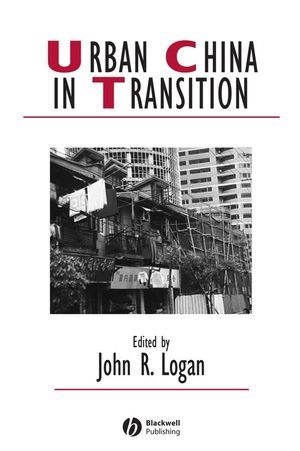Ulteriori informazioni
Informationen zum Autor John R. Logan is Professor of Sociology and Director of the initiative on Spatial Structures in the Social Sciences at Brown University. Founder of the Urban China Research Network, supported by the Andrew W. Mellon Foundation, Dr. Logan is also a member of the editorial boards of Journal of Urban Affairs and City and Community . He was chosen Distinguished Professor of Sociology at the University at Albany, SUNY, as well as Director of the Lewis Mumford Center for Comparative Urban and Regional Research. In April 2003 he was selected by American Demographics magazine as one of five social demographers whose work has most influenced his field in the last 25 years. Klappentext China is rapidly becoming a world power. No longer a developing country, China's cities are undergoing transformations of historic proportions. This book, in the Studies in Urban and Social Change series, evaluates these multi-dimensional changes. With input from professionals in a variety of fields, including Sociology, Geography, Economics, Demography, Planning, Architecture and Anthropology, Urban China in Transition analyzes Chinese trends in diverse topics including:* Migration,* Crime,* Gated Communities,* Neighborhood Associations,* Suburbanization, and* Women's status.Chapters are co-authored by experts on urban Chinese life together with others whose expertise is on the particular topic. Comparisons to urban areas in the United States, Eastern Europe, Asia, and South America pose thoughtful questions about the possible trajectory of Chinese urban development, while underscoring its uniqueness. The result is a broad theoretical and historical perspective that sharply focuses the Chinese experience through alternative prisms, thus enriching theoretical discussion and debate. Zusammenfassung Using an innovative approach, this book interprets the unprecedented transformation of contemporary China's major cities. It deals with a diversity of trends and analyzes their sources. Every chapter is co-authored by an urban China expert and an "outside" expert on the wider topic. Together they offer a broad historical and theoretical comparison. Inhaltsverzeichnis Notes on the Contributors viii Series Editors' Preface xiii Acknowledgments xiv Introduction: Urban China in Comparative Perspective 1 John R. Logan and Susan S. Fainstein Part I: Market Transition in Work Units and the Labor Market 25 1 Two Decades of Reform: The Changing Organization Dynamics of Chinese Industrial Firms 27 Shahid Yusuf and Kaoru Nabeshima 2 The Myth of the "New Urban Poverty"? Trends in Urban Poverty in China, 1988-2002 48 Simon Appleton and Lina Song 3 Class Structure and Class Inequality in Urban China and Russia: Effects of Institutional Change or Economic Performance? 66 Yanjie Bian and Theodore P. Gerber 4 Gender and the Labor Market in China and Poland 89 C. Cindy Fan and Joanna Regulska Part II: Changing Places 113 5 Urbanization, Institutional Change, and Sociospatial Inequality in China, 1990-2001 115 Michael J. White, Fulong Wu, and Yiu Por (Vincent) Chen 6 Growth on the Edge: The New Chinese Metropolis 140 Yixing Zhou and John R. Logan 7 Mirrored Reflections: Place Identity Formation in Taipei and Shanghai 161 Jennifer Rudolph and Hanchao Lu 8 Is Gating Always Exclusionary? A Comparative Analysis of Gated Communities in American and Chinese Cities 182 Youqin Huang and Setha M. Low Part III: Impacts of Migration 203 9 Urbanization in China in the 1990s: Patterns and Regional Variations 205 Zai Liang, Hy Van Luong, and Yiu Por (Vincent) Chen 10 Trapped in Neglected Corners of a Booming Metropolis: Residential Patterns and Marginaliz...

